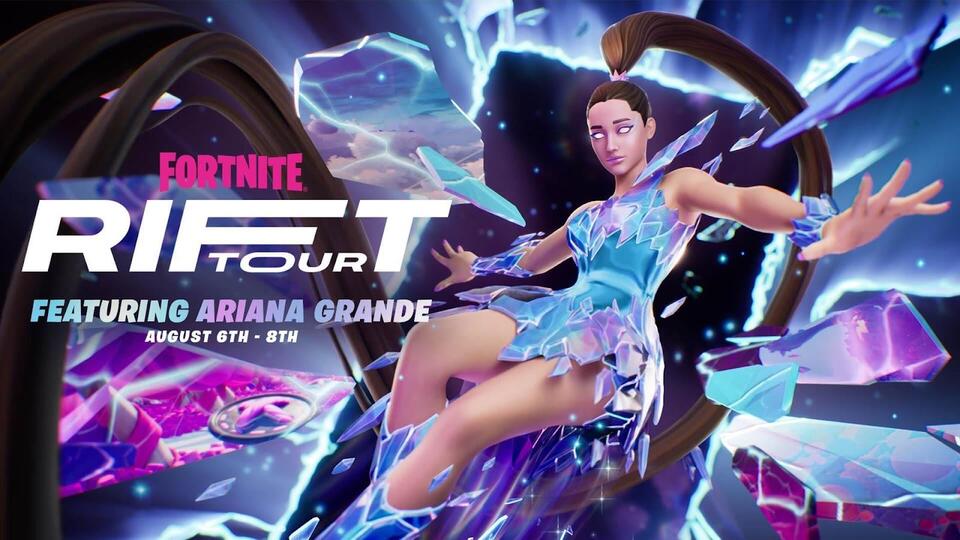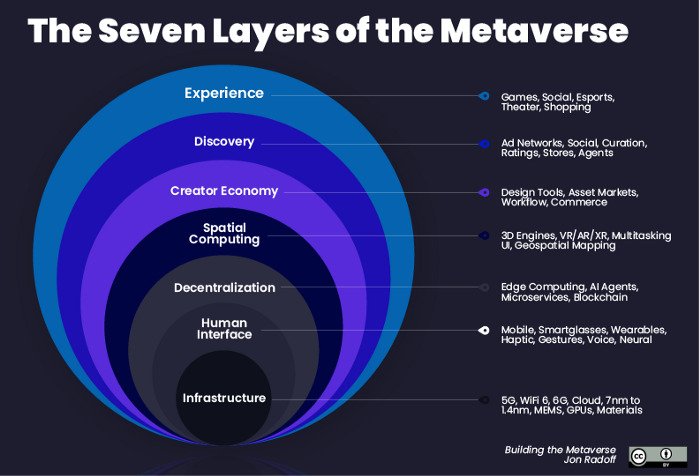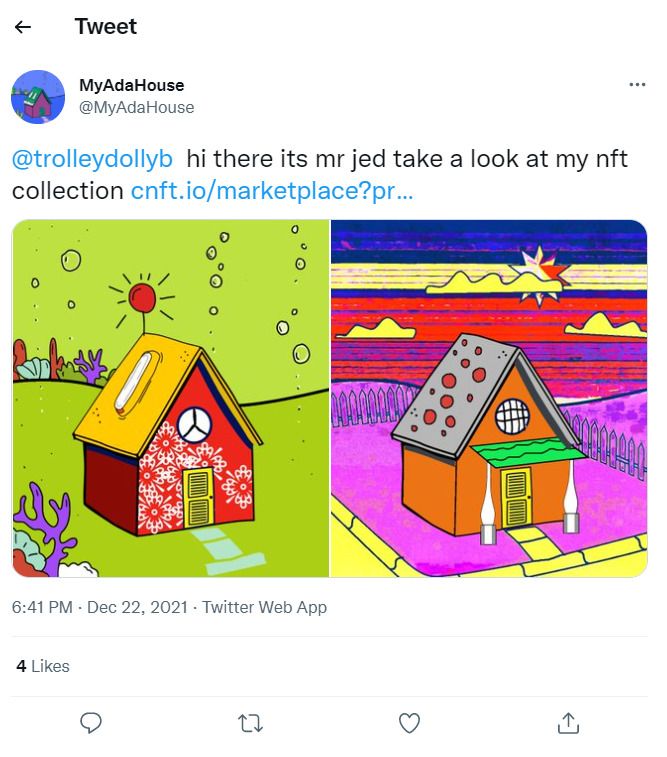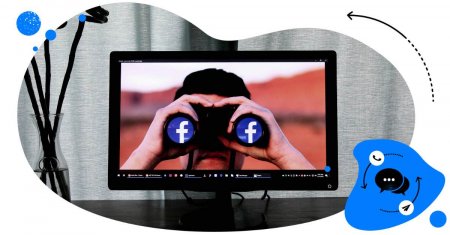If you’re involved in technology or marketing in any shape or form, chances are you’ve at least encountered the term ‘metaverse.’
And like most everybody else, you probably had a hard time wrapping your head around the concept (like I did).
That’s not in the least surprising. After all, the whole concept of the metaverse sounds like stuff you can only read from science fiction novels (cases in point: Ready Player One and Snow Crasher).
This begs a few tantalizing questions:
Is the metaverse the next big thing?
Or is it just another bubble waiting to burst?
Either way, companies, creators, and investors are already betting on it (no surprise there since the metaverse is a potential $1 trillion revenue opportunity). Investments and power plays made to secure a foothold in a potential gold mine have already been made (with more to come).
And if there’s anything we can bet on: it’s that attendant changes will dramatically change how we live our lives and do business.
With that in mind, what steps can you take as a brand to keep up with and thrive in the metaverse?
In this blog post, we explore the following:
- What is the metaverse?
- What changes should you expect as the metaverse slowly emerges or slowly forms in the next few years?
- What can you do to keep up and thrive as the metaverse slowly becomes fully-formed?

Manage all your social accounts from one place
Manage all your DMs and comments from multiple accounts in one place. Bulk-schedule posts and get detailed analytics and reports. Try it for free:
Try NapoleonCat free for 14 days. No credit card required.
What is the metaverse?
Let’s get one thing clear before we begin: The metaverse doesn’t exist yet. Or if it does, it’s not yet fully formed.
The definition of metaverse depends on who you ask. But I prefer Bloccelerate VC founder Kate Mitselmakher’s definition for its comprehensiveness and simplicity:
“[Metaverse is] a distributed ecosystem of interconnected people, objects, and assets, each represented in the digital form with a unique self-sovereign ID — natively interoperable with one another.”
Put another way, the metaverse is a contextual destination that happens when you integrate digital technologies with the physical world, paving the way for interactive and immersive experiences that encompass work, entertainment, and everything in between.
The common misconception about the metaverse is that it’s only about extended reality. It’s not. Virtual and augmented reality is a big part of it, sure, but there are many components of the metaverse that will drastically change the way we live, work, and interact.
Think virtual concerts. Think putting on a piece of digital clothing and buying it using a digital wallet or some equivalent. Think working with your colleagues in a virtual office where everyone (including yourself) is represented by a digital avatar.

All of the above is already happening. The difference is that in a fully-formed metaverse, they all happen synchronously and in ways that support the continuity of identity, data, objects, and ownerships.
In other words, the metaverse is the next evolution of the Internet. It’s the new iteration of the Internet that’s interoperable, decentralized, and democratized. A new frontier where interactions happen on a massive scale and in real-time.
How will all that come about? For starters, the metaverse is a convergence of many technologies that include 5G, blockchain, NFT technology, cloud computing, AI, creator economy, etc.
If you’re having a difficult time wrapping your head around the idea of the Metaverse, I refer to the seven layers of the Metaverse (as suggested by Building the Metaverse blog author Jon Radoff).

Companies that are now building the metaverse
No single company will own the metaverse. For one thing, the metaverse is not a platform or channel the same way the Internet is not. For the metaverse to become a reality, a combination of organizations, creators, and developers has to take part in building it.
Here are some of the companies now involved in building the metaverse.
- Facebook (Meta)
After rebranding to Meta, Facebook has released and announced initiatives that will help build the Metaverse, including VR messaging, Horizon Marketplace, Libra project, etc.
- Epic Games
The company behind Fortnite announced a $1 billion funding round to fuel opportunities for Metaverse growth
- Microsoft
The world’s largest software company announced the forthcoming release of Mesh for Teams in 2023. The said solution will allow organizations to create virtual worlds for people to collaborate using virtual avatars as their digital identity.
- Binance
The Binance NFT marketplace provides creators, artists, buyers, and sellers to trade virtual assets from multiple blockchains, bolstering interoperability between metaverse ecosystems.
- NVIDIA
The graphics card manufacturer and GPU designer launched Omniverse, a real-time, physically accurate simulation that provides creators, designers, and engineers with virtual spaces for interactive and real-time collaboration.
Metaverse: a (likely) roadmap
Nothing is set in stone yet when it comes to the metaverse. There are just too many players and layers involved. But considering the billions of dollars being invested in technologies that many consider will be the building blocks of the metaverse, more and more cynics are changing their stance out of fear of becoming irrelevant.
A strong case that can be made for the metaverse is that people around the world are already spending a lot of time online. Moreover, our digital identities matter more than they’ve ever had (as evidenced by the rise of identity theft).
And with the convergence of emerging technologies that help people build on that identity, businesses and creators will be compelled to have a stronger focus on interoperability to create alignment and continuity of experiences.
Here are key innovations that will define a (likely) roadmap of the multiverse in the coming years.
- Creation and building of social experiences from the interplay between 2D newsfeeds, 3D worlds, and physical reality.
- Extended realities on top of AR/VR
- Aspects of the virtual world that are indistinguishable from real life.
- Building of communities bound by ideology and culture, not by geography
- Users’ willingness to pay for immersive and interactive experiences, paving the way for new markets, revenue sources, and jobs.
- Property transactions are driven by the NFT economy
- Etc.
Metaverse as a disruptive force
The very concept of the metaverse alone will become a disruptive force in the years to come. And those who fail to keep up will be at a disadvantage.
Simon Powell, Global Head of Thematic Research at Jefferies, says as much in his research paper entitled “The Digitization of Everything”:
“The metaverse will be the biggest disruption that humans have ever experienced. It is a wrapper that will roll up other digital platforms.”
Which raises another question: which industries will undergo a major disruption once the metaverse achieves its true form?
There’s no clear answer to that… yet. But we’re also seeing signs that digitally-inclined industries such as gaming, social media, fashion, music, and movies are better equipped to keep up with and thrive in the metaverse.
Meanwhile, traditional industries like manufacturing, tourism, farming, or any industry relying on mass production, will have their work cut out for them.
Is the Metaverse replacing Facebook?
Mark Zuckerberg just about blew the Internet wide open when he announced that Facebook will be rebranded to Meta last October.
As expected, speculations spread like wildfire. But, let’s get one thing clear: Mark Zuckerberg is not going to own the metaverse. And frankly, the fear that he’s going to is a bit misguided.
Whatever Mr. Zuckerberg’s intentions are in launching Meta, one thing’s for sure: his long-term initiatives with Meta are going to help build it. And “interoperability” and “openness” will be the main driver of those initiatives given the inherent nature of the metaverse.
So, no, Facebook as a social media platform isn’t going away any time soon. Instead, Meta and the technologies it develops in response to the evolution of the metaverse will be integrated into the platform and its sister companies Instagram, Oculus, and WhatsApp.
What will the Metaverse mean for social media?
If anything, the metaverse needs the social media element to grow and thrive. Why? Because in a world of virtual spaces, NFT’s, and cryptocurrency, our social news feeds are still the best place to share our experiences. Some of those experiences will involve the metaverse. What better way to brag about your first NFT purchase than to share it on social media?

With that said, social media platforms have a lot of work to do if they want to stay relevant in the coming years.
Which reminds me…
How to leverage the Metaverse to your advantage
You now have at least a general idea of what the metaverse is. But how do you use the metaverse to your advantage?
You can get involved in building it, for starters.
Relax. I’m not suggesting you should go all-in in investing in NFTs or buying virtual real estate in
Decentraland (those are topics for another day). We’re talking about practical suggestions that would yield a good mix of short-term and long-term wins.
Here are suggestions that will make your brand metaverse-ready.
- Expand customer experience into three dimensions
Customers crave novelty. They love new experiences. That is why they will always look to consume content in new ways.
While 2D news feeds aren’t going away any time soon, customers will eventually gravitate towards virtual worlds. In fact, they’re already there, and if you want to grab and hold their attention, you have to rethink your brand narrative in three dimensions.
Meta is one of the companies that made this possible with the release of Horizon Worlds.

Navah Berg, Facebook Horizon Creator and co-founder of Women in Horizon, had this to say about Horizon:
“Connecting 2D newsfeeds to a 3D community in Horizon where world-building with others is truly a community-building experience. Horizon is the heart of the social metaverse.”
Many brands have already dipped their toes in “metaverses,” staging virtual fashion shows and virtual concerts, buying in-game ads, and giving out exclusive digital assets in games.
In an era where customers can try on new clothes via virtual fitting rooms or see how a piece of furniture would look in their home with the click of a smartphone, your brand will be at a disadvantage if you don’t give your customers the immersive, personalized experiences they crave.
- Community building
While nothing’s set in stone yet about how the metaverse will play out in the years to come, one thing’s for sure: the metaverse will be community-driven.
The decentralized nature of the blockchain, coupled with the versatile, interoperable, and scalable digital environments of the metaverse, ensures that no single entity or corporation gets to make the rules alone.
In other words, your customers aren’t just customers. They are also fellow creators and builders. And if you want your brand to grow in the metaverse, you need to support your audience in ways that empower them as creators and brand storytelling partners.
You can make this happen by focusing on community-building.
The beauty of the metaverse concept is that it has attracted investment and talent that will help build experiences that foster robust creator communities. Facebook, for instance, announced a $10 million Creator fund to encourage people to build experiences on Horizon Worlds.
As is the case with any community-building initiative, being a purpose-driven brand helps. After all, people will gravitate towards brands whose vision and core values reflect their own. This same motivation is what will compel them to become active participants in your community, both as creators and brand advocates.
- Create personalized experiences
Personalization will become even more important as the divide between the real world and the digital world continues to close.
People will invest their time and resources to build a presence in the metaverse. They will crave experiences that mirror real-life in some form. Moreover, they will want to create digital avatars that represent them as closely as possible.
If you want your brand to be metaverse-ready, you need to be capable of delivering hyper-personalized experiences across platforms, dimensions, and at scale. You can’t make this happen with current AI and machine learning technology, but recent developments in natural language processing, reinforcement learning, and emotion recognition serve as proof that we’re headed in the right direction.
The key here is to keep track of what content consumption will mean for your audiences in the future. And you’d do well to use the data you have at your disposal to deliver relevant and immersive experiences.

In-depth Social Media Analytics
Find out what to post and when to maximize your organic reach. Analyze your competitors on social media and improve your own strategy. Try NapoleonCat for free:
Try NapoleonCat free for 14 days. No credit card required.
Into the metaverse
No matter how long the metaverse achieves its full form, or whether it’s happening at all, one thing’s clear: things are changing in a big way.
Change can be a scary thing, especially if you’re a business owner or a marketer. But at the end of the day, good fortune comes to those who keep their customers as their North Star.
So, keep engaging and supporting your customers every step of the way, be it in the physical world, in 2D, or in 3D. As an official Meta Business Partner, NapoleonCat will be with you every step of the way too! Welcome to the future. Keep going, we’re in this together.





